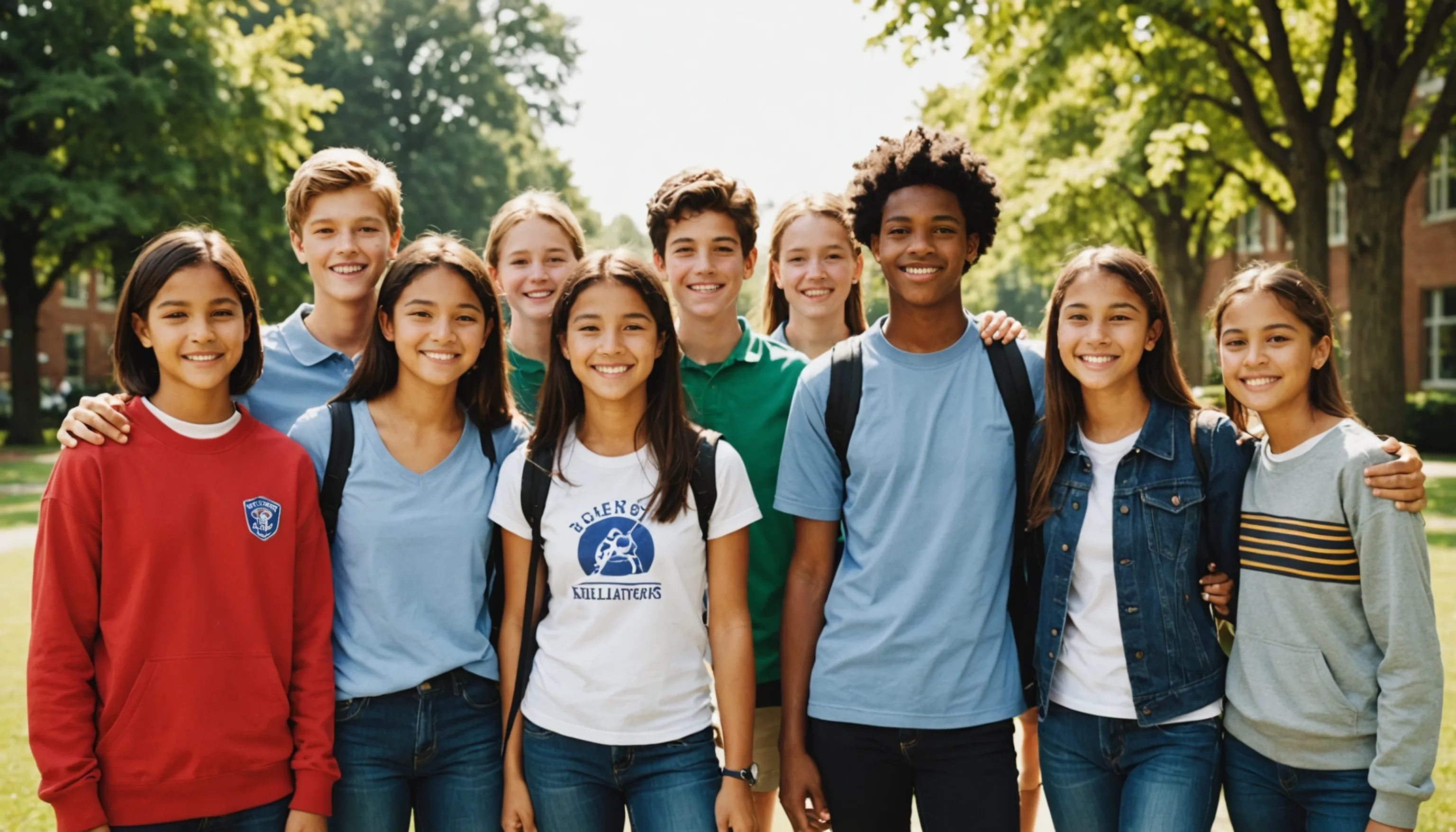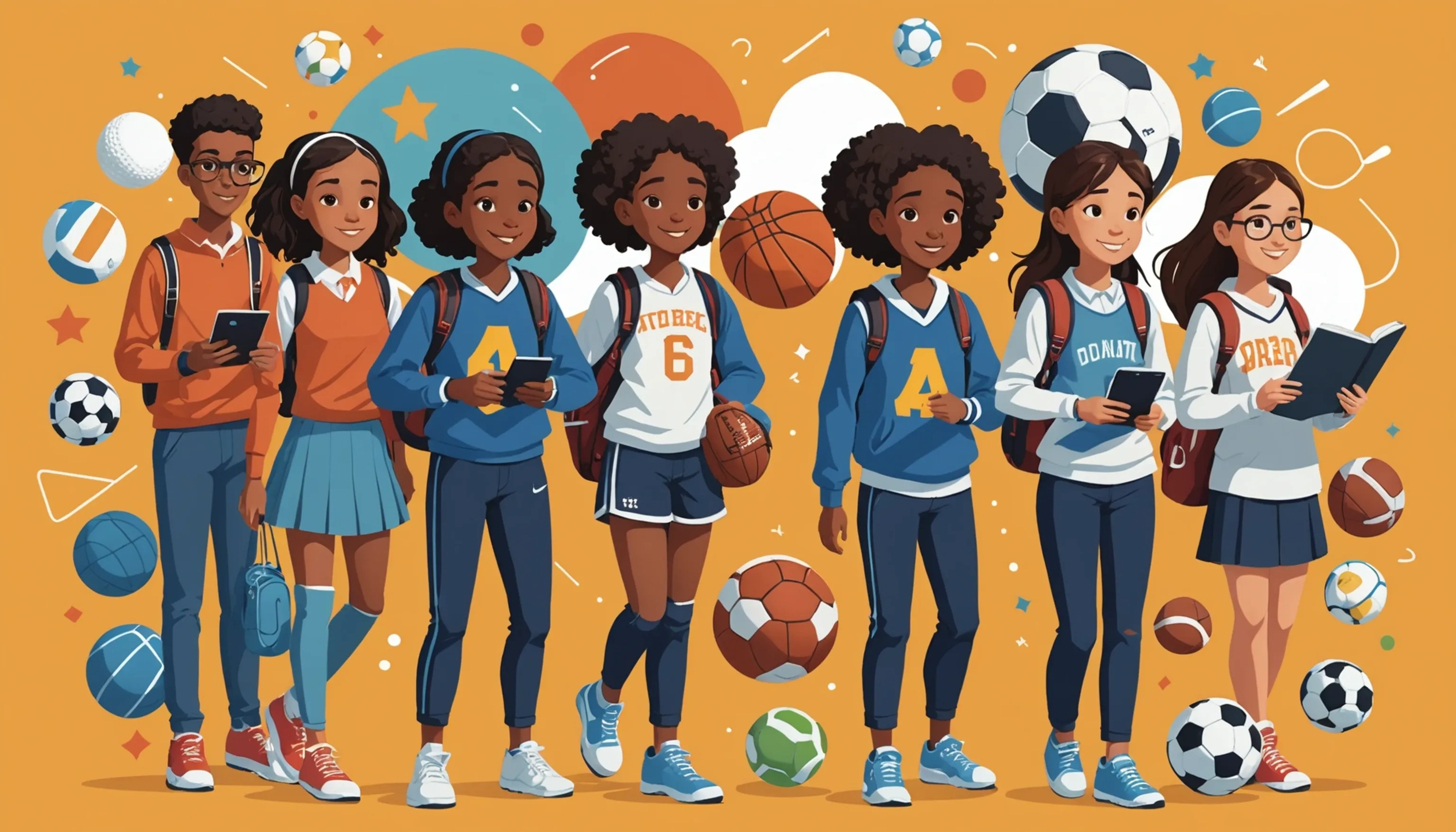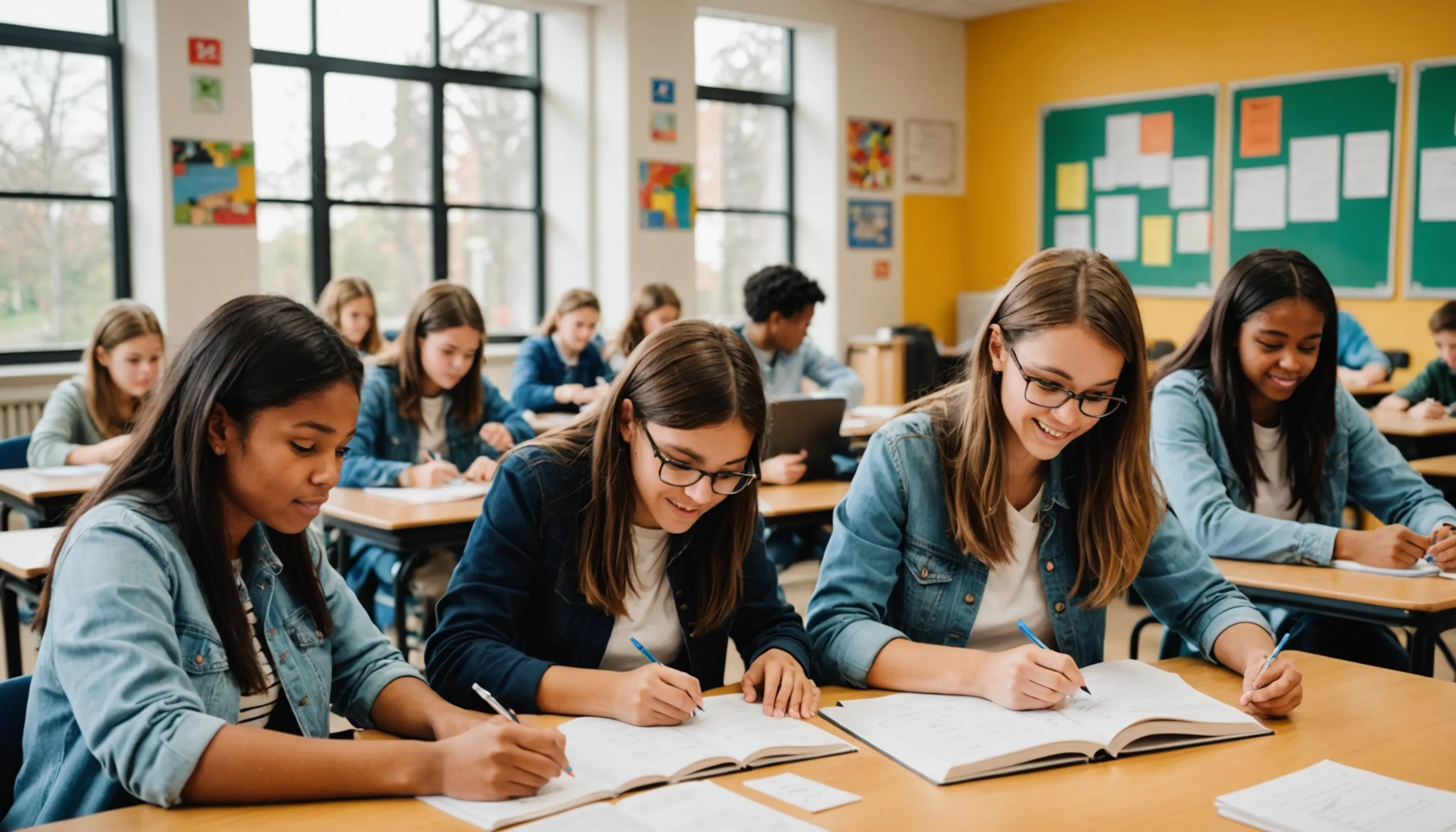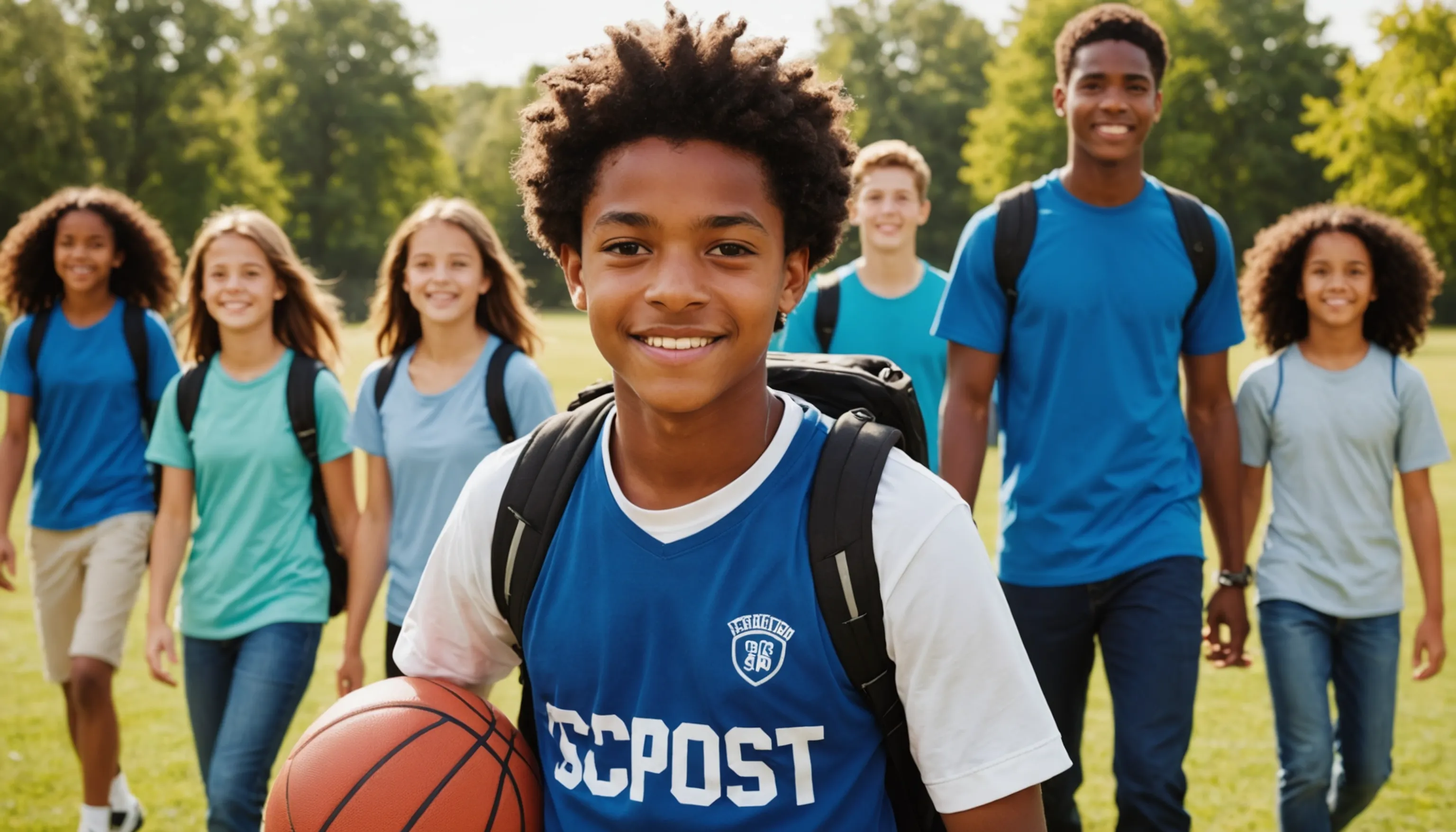The worse your kid's math teacher, the more important afterschool activities are
 HvWHenry van Wagenberg
HvWHenry van Wagenberg
The Importance of Afterschool Activities for Teenagers
Afterschool activities play a crucial role in the development of teenagers, especially when academic challenges arise, like a poor math teacher. These activities offer a constructive outlet for stress and provide opportunities to develop essential life skills. Engaging in extracurricular activities fosters a sense of community, enhances social skills, and boosts self-esteem.
Moreover, these programs allow teens to explore their interests, which can lead to greater academic motivation. By participating in afterschool activities, teenagers can build resilience and improve their overall well-being, creating a balanced approach to their education.
How Poor Math Instruction Affects Students
Poor math instruction can significantly impact students, especially in their formative teenage years. When a math teacher struggles to convey concepts effectively, students may develop a negative attitude toward mathematics, leading to a lack of interest and motivation. This disinterest can create a snowball effect, where students fall behind in their understanding, leading to frustration and anxiety about the subject.
Research shows that students who receive inadequate math instruction are more likely to experience lower academic performance. According to a study by the National Assessment of Educational Progress (NAEP), only 25% of eighth graders performed at or above the proficient level in math in 2019. This statistic highlights the substantial impact that teaching quality has on student outcomes.
Furthermore, poor math skills can affect students' confidence in their abilities, leading them to shy away from advanced math courses in high school and beyond. This decision can limit their future career options, especially in fields that require strong mathematical skills, such as engineering, finance, and technology.
In addition to academic setbacks, students may also experience emotional consequences, including increased stress and anxiety. This is where afterschool activities become vital. They can provide a supportive environment for students to explore math in a different context, helping to rebuild their confidence and interest in the subject.
Ultimately, addressing the effects of poor math instruction requires a multifaceted approach, where afterschool programs can play a pivotal role in fostering a more positive educational experience.
The Role of Afterschool Activities in Academic Success
Afterschool activities play a significant role in enhancing academic success for teenagers, particularly when faced with challenges in subjects like math. These programs provide a structured environment where students can engage in learning beyond the traditional classroom setting, fostering both academic and personal growth.
One of the key benefits of afterschool activities is the opportunity they offer for personalized learning. In smaller group settings, students can receive more individualized attention, allowing them to grasp difficult concepts at their own pace. For example, tutoring programs can target specific math skills that students may struggle with, helping to fill gaps in their understanding.
Moreover, participation in afterschool activities promotes essential life skills such as time management, teamwork, and problem-solving. These skills are not only valuable in academic settings but also in real-world situations. According to a study by the Afterschool Alliance, students involved in afterschool programs show improved academic performance, higher attendance rates, and better behavior in school.
Additionally, afterschool activities can enhance students' motivation to learn. Engaging in sports, arts, or academic clubs provides a well-rounded experience that can reignite a passion for learning. Students often find that the skills they develop in these activities translate into increased confidence in their academic pursuits.
In conclusion, afterschool activities serve as a vital support system for students, helping them overcome academic challenges while promoting a balanced, fulfilling educational experience.

Types of Afterschool Activities to Consider
When selecting afterschool activities for teenagers, it's essential to consider a variety of options that cater to different interests and skills. Here are some types of activities to consider:
- Sports and Physical Activities: Engaging in team sports or individual fitness programs helps promote physical health and teamwork.
- Arts and Creative Programs: Classes in painting, music, or theater encourage creativity and self-expression.
- Academic Clubs: Math clubs, science fairs, and debate teams foster academic skills and critical thinking.
- Tutoring Programs: Peer tutoring can provide personalized support for challenging subjects.
These activities can greatly enhance a teenager's educational experience and personal development.
Sports and Physical Activities
Engaging in sports and physical activities is crucial for teenagers, providing them with numerous benefits that extend beyond physical health. Participation in sports helps improve cardiovascular fitness, strength, and flexibility, contributing to overall well-being. According to the Centers for Disease Control and Prevention (CDC), only about 24% of high school students meet the recommended guidelines for physical activity, highlighting the need for more engagement in this area.
Additionally, sports foster essential life skills such as teamwork, discipline, and leadership. Working towards a common goal in a team setting teaches students how to collaborate effectively and communicate with their peers. These skills are invaluable not only in sports but also in academic environments and future workplaces.
Moreover, sports can significantly boost a teenager's self-esteem and confidence. Achieving personal or team goals can lead to a sense of accomplishment that translates into other areas of life, including academics. When teens feel confident in their abilities, they are more likely to take on challenges in school and participate in class discussions.
Furthermore, sports serve as a constructive outlet for stress and anxiety. The physical activity involved in sports releases endorphins, which can improve mood and reduce feelings of depression. With the pressures of schoolwork and social dynamics, having a healthy way to cope with stress is vital for teenagers.
In summary, incorporating sports and physical activities into a teenager's routine is essential for promoting both physical and mental health, enhancing their overall development.
Arts and Creative Programs
Arts and creative programs play a pivotal role in the development of teenagers, offering a platform for self-expression and exploration. Engaging in activities such as painting, music, theater, and dance not only nurtures creativity but also enhances cognitive skills. According to the National Endowment for the Arts, students who participate in arts education show improved academic performance, better critical thinking, and higher levels of engagement in school.
One of the significant benefits of arts programs is their ability to foster emotional intelligence. Through artistic expression, teenagers can explore their feelings and thoughts in a constructive manner. This process can lead to improved self-awareness and emotional regulation, which are essential skills for navigating the challenges of adolescence.
Moreover, arts programs encourage collaboration and teamwork. Whether working on a group project in theater or participating in a band, students learn to communicate effectively and appreciate diverse perspectives. These experiences not only build strong interpersonal skills but also create a sense of community among participants.
Additionally, involvement in the arts can enhance a teenager's self-esteem. Achieving personal milestones in creative endeavors boosts confidence and motivates them to pursue further challenges. As they receive positive feedback from peers and mentors, they develop a strong sense of identity.
In conclusion, arts and creative programs are invaluable for teenagers, providing not just an outlet for creativity but also crucial life skills that benefit their academic and personal growth.

Academic Clubs and Tutoring Options
Academic clubs and tutoring options are instrumental in supporting teenagers' educational journeys, especially in subjects where they may struggle. These programs provide a structured environment that fosters a deeper understanding of academic content while promoting a love for learning. According to a study by the National Education Association, students who participate in academic clubs often demonstrate higher academic achievement and better attendance rates.
Joining academic clubs allows students to engage with peers who share similar interests, creating a sense of community and collaboration. Whether it's a math club, science fair team, or debate society, these clubs encourage critical thinking and problem-solving skills. Students learn to work together, share ideas, and present their findings, which enhances their communication abilities and boosts their confidence in public speaking.
Tutoring options complement these clubs by providing individualized support tailored to each student's needs. Peer tutoring, for example, allows students to learn from their classmates in a less intimidating setting. This approach not only reinforces the material but also fosters relationships between students, as they work together to overcome academic challenges.
Furthermore, tutoring can help bridge the gap for students who may feel lost in a traditional classroom environment. By receiving personalized attention, they can ask questions and clarify concepts at their own pace, leading to improved comprehension and performance in their studies.
In summary, academic clubs and tutoring options play a vital role in enhancing teenagers' academic success, promoting engagement, and building essential skills for their future.
How to Support Your Teen in Afterschool Activities
Supporting your teen in afterschool activities is crucial for their development and well-being. Here are some effective ways to provide that support:
- Encourage Participation: Discuss the benefits of afterschool activities and help your teen explore options that match their interests.
- Be Involved: Attend events and shows, or volunteer when possible. Your presence can boost their confidence.
- Provide Transportation: Help with logistics by offering rides or assisting with scheduling, making it easier for them to commit.
- Celebrate Achievements: Acknowledge their hard work and accomplishments, no matter how small. This fosters a sense of pride.
- Maintain Balance: Encourage your teen to balance academics and activities, ensuring they don’t become overwhelmed.
By actively supporting your teen, you help them gain valuable skills and build a fulfilling, well-rounded life.
Encouraging Participation and Engagement
Encouraging participation and engagement in afterschool activities is essential for teenagers to develop new skills and build confidence. Here are several effective strategies to motivate your teen to get involved:
First, start by having open conversations about their interests. Ask questions about what activities they enjoy or have always wanted to try. By showing genuine interest, you validate their feelings and encourage exploration. For instance, if your teen loves music, suggest joining a band or choir, while a passion for sports might lead to trying out for a team.
Next, set realistic goals together. Help your teen identify short-term and long-term objectives related to their chosen activity. Achieving these goals can enhance their motivation and sense of accomplishment.
Additionally, create a positive environment around participation. Celebrate their efforts and achievements, regardless of the outcome. This reinforcement fosters a growth mindset, encouraging them to embrace challenges.
Moreover, consider involving their friends. When peers participate together, it can make the experience more enjoyable and less intimidating. Encourage your teen to invite friends to join them in activities, creating a supportive social network.
Lastly, ensure that afterschool commitments do not overwhelm your teen. Help them find a balance between academics and extracurriculars, allowing them to feel engaged without feeling stressed. By implementing these strategies, you can effectively encourage your teen to participate and engage in afterschool activities, leading to personal growth and fulfillment.
Balancing Academics and Extracurriculars
Balancing academics and extracurricular activities is essential for teenagers to thrive in both areas without feeling overwhelmed. Here are some strategies to help your teen find that balance:
First, encourage your teen to create a structured schedule. They can use a planner or digital calendar to map out their school assignments, study time, and extracurricular commitments. This visual representation helps them see where their time goes and ensures they allocate enough time for both academics and activities.
Next, prioritize tasks together. Teach your teen to assess the importance and deadlines of their assignments. By identifying high-priority tasks, they can focus on completing critical academic work before engaging in extracurricular activities.
Encourage your teen to set realistic goals. It's vital for them to understand their limits and not overcommit to too many activities. Help them choose extracurriculars that genuinely interest them and align with their future aspirations, ensuring they remain motivated.
Moreover, promote healthy study habits. Encourage your teen to adopt effective study techniques, such as breaking study sessions into manageable chunks and incorporating regular breaks. This approach enhances focus and retention, making study time more productive.
Lastly, maintain open communication. Regularly check in with your teen about their workload and stress levels. Being supportive and understanding can help them navigate challenges more effectively. By implementing these strategies, teens can successfully balance academics and extracurricular activities, paving the way for a well-rounded educational experience.
